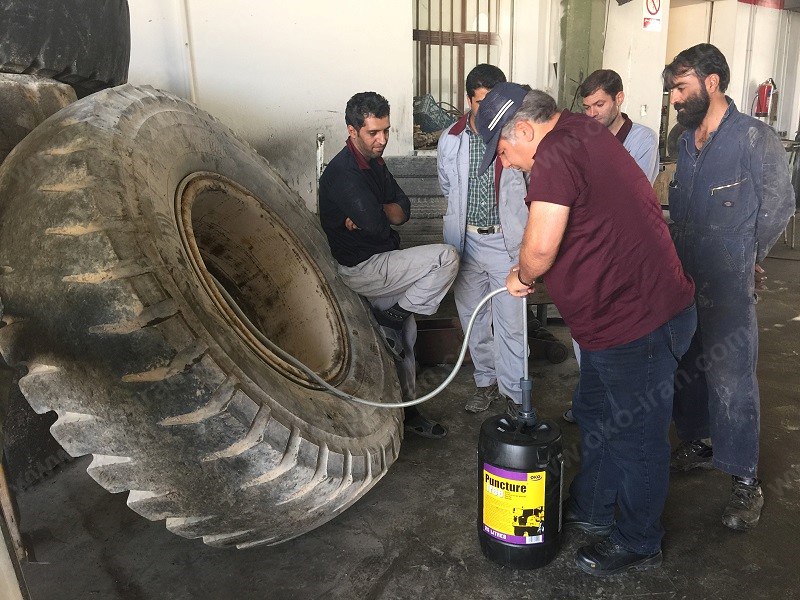This is a cold two-component product based on neoprene polymers with vulcanizing materials for rubber lining applications, rubber-to-rubber apparatus, rubber-to-cement surface, rubber-to-metal, rubber-to-fiberglass, apparatus and connection of consumable tapes of all types of conveyors. It has been designed and formulated in mining industries, cement factories, iron smelters, petrochemicals, etc.
How to mix glue and hardener:
To create a strong connection, the surface preparation for the operation of the conveyor belt apparatus must be done carefully so that the adhesion strength to all preparation steps and apparatus, the ambient temperature is between 10 and 40 degrees Celsius and the environment is below 80%. be
Surface preparation:
Each quart of SG-4000 Conveyor Belt Adhesive is mixed with a 30 gram jar of Hardener as hardener and prepared as an apparatus adhesive. The time required to consume the mixed glue is between 2 and 3 hours, depending on the environmental conditions.
Rubber to steel or metal: All surfaces must be clean and free of dust and paint, paint and other loose surfaces, and for this purpose, the surface is first sandblasted with 2 mil sandblasted balls, then the surface is dust-free. and cleaned the resulting dust. and Maxsol Solvent is used to remove it from the surface, at most one hour after the start of the apparatus operation. For greater adhesion, Desmodor RE consistency can be used as a primer layer.
Rubber to Fiberglass: On the surface, the fiberglass is treated with a solvent, and it is a good possibility that after that, if necessary, sandblast and clean it again with a solvent to remove the remaining particles from the sandblast operation, then a layer of SG-4000 glue is applied as a primer on the surfaces and after an hour, the final layer of glue is applied again, and after a few minutes, when the glue still has tag (adhesion), the two surfaces are placed on top of each other.
tire to tire:
The rubber preparation method is similar, only it does not require sandblasting, and the surface and two-step application of glue are required.
Rubber to cement or concrete surface:
Concrete and cement surfaces also need sandblasting to remove porous and smooth surfaces and to create a level and uniformity. In some cases, it also needs washing water, which is done after the initial sandblasting according to specific needs and applications for greater strength. . Desmodur RE consistency can be used as a primer layer. After surface preparation, adhesive application is done in two steps. Wooden surfaces also have a similar method, with the difference that instead of sandblasting, post-taping and preparation operations are performed.
Fabric by fabric:
All kinds of woven fabrics and yarns used in conveyor belts must be cleaned and gluing or apparatus operations must be performed in two stages. Before the apparatus operation, the strength of the fabric or woven yarns must be ensured in order to achieve a suitable adhesive strength. to be you have.
Communication method and devices:
After making sure that the surfaces are prepared, G-4000 glue is applied to the surfaces and possible bubbles are removed with a brush or spatula, and an hour is given for this first layer to dry, and then the second layer of glue is applied on it. be and be closed. Environmental and environmental conditions are given a period of 3 to 6 minutes for some of the adhesive solvent to evaporate and cause crystallization. to be The roller and pressure completely fix the two surfaces together and are subjected to pressure and press for 24 hours to reach the maximum adhesion strength.
